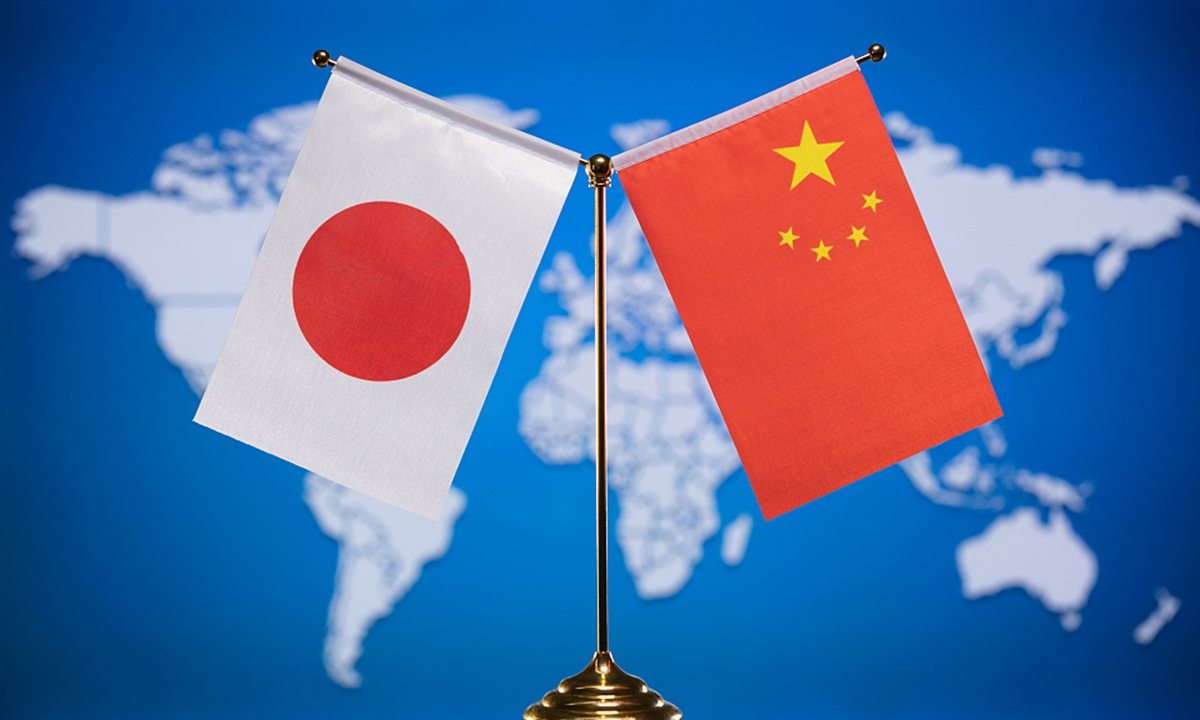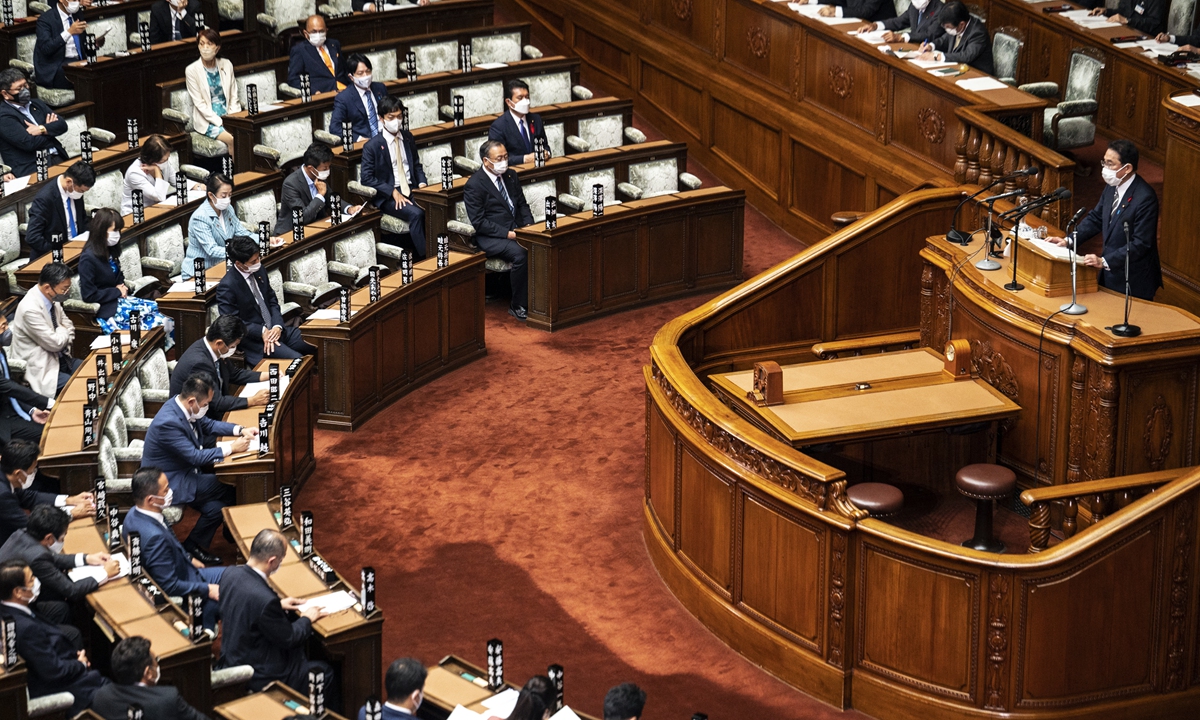
Photo: VCG
Chinese President Xi Jinping on Friday held a phone conversation with new Japanese Prime Minister Fumio Kishida right after the latter gave his first policy address, and both sides saw the conversation as very timely and important with the two leaders agreeing to enhance communications and cooperation, manage differences and coordinate to tackle challenges.
Kishida's expressions at the policy address and the phone conversation signaled a potential new start of China-Japan relations, Chinese observers said, noting Kishida government appeared future-oriented, constructive and cooperative, and the policy change may come from some new situations in China-US relations and Japan's reconsideration of its own interests.
Xi noted China and Japan are close neighbors and "a kind neighbor is a great treasure." A sound bilateral relationship benefits the two countries as well as the peace, stability and prosperity of Asia and the world.
2021 marks the 50th anniversary of the normalization of diplomatic relations between China and Japan. "It is hoped that the two will revisit the original aspiration, meet each other halfway and open up new prospects for the development of bilateral relations," Xi said.
Kishida expressed the will to work with China in learning from history to develop constructive and stable relations and manage differences via communications. "Japan is willing to enhance economic and people-to-people exchanges with China, and cooperate on epidemic control and other international topics," Kishida said.
Xi sent a congratulatory message to Kishida on Monday when he became Japan's new leader.
Lü Yaodong, director of the Chinese Academy of Social Sciences' Institute of Japanese Studies, told the Global Times on Friday that the phone call is a very good start for bilateral relations in a new period. The two are neighbors, as well as the second and third largest economies in the world.
Xi also said China and Japan should learn positive experiences and lessons in diplomatic relations and abide by the principles established in four political documents, properly handle key sensitive matters related to history and the island of Taiwan.
"As long as the four documents are upheld, the bilateral relations won't derail," Lü said, noting big vision is important for the two neighbors to jointly maintain peace, stability and development of the region.

Japan’s new Prime Minister Fumio Kishida delivers his first policy speech in Tokyo on Friday. Kishida said a stable bilateral relationship with China is important for the region and the world.Photo:AFP
In Kishida's policy address on Friday, the former foreign minister said a stable relationship with China is important for both countries, for the region and the international community, expressing willingness to keep communications with China and cooperate on shared fields.
Not long ago when running for president of the ruling Liberal Democratic Party, Kishida had some hawkish remarks toward China. Before that, he was widely seen as dovish in his China policy.
Jin Ying, a research fellow on Japan at the Chinese Academy of Social Sciences, told the Global Times that the change in attitude is not surprising because the hawkish remarks were election tactics to unite the right-wing forces in his party but as prime minister, he adjusted to a more rational manner.
Jin believes the attitude signals Japan adjusted its China policy amid the new changes in China-US relations, seen from the latest meeting between senior Chinese diplomat Yang Jiechi and US security advisor Jake Sullivan.
Japan's development needs China and as Japan's economy is plagued by the COVID-19, China as its top trade partner can add impetus for its growth, Jin said.
But Kishida also said Japan would enhance cooperation within the Quad. His aspired revision of some defense documentations is believed to target China and North Korea.
Lü noted Japan's alliance with other countries must not target a third party, but during the Suga administration, its alliance with the US touched the Taiwan question, the most sensitive nerve of China, and violated the bottom line of the four documents.
The historical documents deemed China's development as an opportunity rather than a threat to Japan and the expert believes Japan should seek some wisdom from history to solve current problems.
Jin also believes if China and Japan can reassure each other's concerns through communications and consultations, resources Japanese government wasted on its military could be made for better use. "The Japanese government should make a wise choice rather than get hijacked by interest groups favoring the US," the expert said.





